There are ways to add excitement to a camping trip with kids. I choose three: Go to a campground I haven’t visited in 20 years in the blind hope that it hasn’t changed; don’t make reservations; and leave the house seven hours before sunset for a 6 1 / 2-hour road trip, declaring to anyone who’s still listening that I want the tent set up by dark.
One hour into the drive, I concede defeat on that last one. We’re cemented in traffic north of Woodbridge, Va., and our destination — Frisco, N.C., near the southern tip of Hatteras Island — lies an unflinching 300 miles away. My kids, Kai (5) and Christina (2), are already asking how much longer we’ll be car-bound, and my wife (43), wants to find a restroom.
But even with a looping “Frozen” soundtrack, I am calm and confident that we’ll drift to sleep beneath a dazzling night sky, within earshot of the Atlantic Ocean.
It’s well after sunset when we pull into the Frisco Campground. My buddy Peter and I came here regularly in the 1980s to chase surf, and I recall one particularly stormy morning when I peered out of my tent to see his own whipping in the wind, saved from flying off only by Peter himself, balled up on the tent floor, waiting out the maelstrom.
The memory, laced with tonight’s chirping bugs and salt air, releases a wave of nostalgia for all the years washed out with the tides. But a slow drive around the campground, even in the dark, suggests that it is indeed unchanged.
The 127 tent and RV sites sit in a pocket of dunes about 100 yards from the beach, which is accessible via two weathered wooden walkways that traverse a pan of coastal vegetation. The sites largely conform to the natural environment, with sand paths snaking through myrtle, yaupon and maritime pine trees to tent-size clearings.
As we spill from the car, my sole mission — to set up our tent — is amended, first to “find the tent among the spring-loaded knot of junk in the back of the car” and finally to “forget it, chill out and open a beer.” Kai has hopped out and is crouched on our parking slab, staring into the night for the frogs he knows are there; Christina is crashed in her car seat. The night breeze carries sounds of kids playing, adults partying and the concussive report of waves hitting sand.
Frisco Campground is one of four in Cape Hatteras National Seashore, and the spartan facilities — a couple of bathrooms and cold-water shower stalls — are deliberate: As the Park Service designed this facility 70-odd years ago, officials opted against big Western-style lodges for fear that they would take business away from the locals. Even in the 1940s, North Carolinians questioned why the feds were meddling in state affairs by creating the park in the first place, says Cyndy Holda, a Cape Hatteras National Seashore spokeswoman.
By East Coast standards, Frisco is remote, three hours from the nearest notable airport (Norfolk) and car- accessible only by the two-lane Highway 12. Sand and water frequently wash over the road, and on at least two occasions in the past eight years, it has required major surgery after hurricanes punched new inlets through the island.
At its tip, Hatteras Island claims a remarkable distance of 26 miles from the mainland, lending it the feel of a glorified sandbar in the middle of the ocean.
All those characteristics feed my love of the place, and my affection for Frisco in particular has deepened since the kids arrived, because the gently sloping beaches allow gradual progression into deeper water. Beaches farther north on the island, by and large, drop abruptly into sink-or-swim territory, with an often kid-unfriendly shore break.
Dawn’s early light
Friday, 6:15 a.m.: The sky’s awake, so we’re awake (sorry, “Frozen” haters, but family newspapers present their own hazards). As any hard-core outdoorsperson will tell you, camping with children requires regimented meal and bed times, and a steady beat of distractions from the realization that your entire family is vacationing in an 8-by-8 nylon room.
First up: breakfast!
I’m ready, having packed like a doomsday prepper — pancake mix, eggs, oatmeal, yogurt, fruit, nuts, coffee and the French press, and the coup de grace, a new two-burner camp stove. As I lay out this spread, I see that I also brought a fuel canister that fits my old 1980s stove, the one tucked safely in the basement at home . . . but not the new one.
Before anyone notices, I suggest a walk on the beach before breakfast.
“Beach!” the kids yell, and bolt down the walkway, Kai wearing a sun shirt and hat and nothing else, his more fully clothed sister in pursuit.
By the time Cathleen and I catch up, our spawn have been absorbed into a pack of children, and the lot of them look like they were born to the sand, without a care in the world.
To our left, a shoreline devoid of all development arcs five miles to the tip of the island, beyond which the southern Gulf and northern Labrador currents collide. Faintly visible near the point, above a dense coastal forest called Buxton Woods, is the Cape Hatteras Lighthouse, the island’s 208-foot-tall icon. To our right, miles more of wide sand. We stand on a dune watching youth at play until I notice that Kai is no longer among them. He soon appears atop another dune, a half-naked wild man brandishing a T.rex roar and hurling fistfuls of sand into the wind. “I think,” Cathleen offers, “that he might be getting hungry.”
Among the many charms of the rustic Frisco campground is its close proximity to the not-so-rustic Captain Beaner bakery and cafe, which has earned a rep as the best breakfast in town. Lattes and omelets for the big people and a split order of blueberry pancakes for the yutes. Anton, the owner and chef, waves off that request and serves up two heaping plates because, the waitress tell us, “He just loves kids.”
After wolfing those down, the children dart outside to play. We pay up, refill our coffee and emerge to find three patrons dutifully walking the plank, which K. and C. have set up on Beaner’s deck using a frayed 2-by-4. Cute, until I envision a customer’s torn ACL and the ensuing insurance dispute. So we round up our charges and head back to the beach.
On the beach
In the 1990s, I regularly drove a four-wheel drive on the National Seashore beaches, using the dozen or so access ramps that hump over the dunes from Highway 12. Now many ramps are closed, to protect nesting sites of threatened shore birds, and the Park Service charges $49 for a one-week (or $120 for one year) off-road vehicle permit, a privilege that used to come free.
All this has kicked a local pastime — grousing about oppressive regulation — into high gear. Profane bumper stickers accuse the Audubon Society of valuing birds over people, and you’d need earplugs to avoid overhearing indictments of the government for extorting its citizenry.
But among the few open ramps is one directly adjacent to the Frisco Campground, a nice opportunity to give the kids a taste of beach driving, and Cathleen and me an escape from lugging our whole circus over the walkway and dunes. We pay our $49, drop our tire pressure to 17 pounds (more surface area to stay atop the sand) and bounce over the ramp.
Back in the 20th century, the vast majority of Outer Banks beach drivers were dedicated anglers, their jeeps so adorned with rods and rigging to be almost indistinguishable from sport-fishing boats. Some of those guys remain, but a new breed has arrived, with comfort accouterment spilling forth like clowns from a VW bug: full bars and grills, cornhole games, detached- speaker boom boxes and shelters to shade extended families.
As I’m setting up our own 10-by-10 shelter, Mike from Raleigh drops his corn hole beanbag and hurries over.
“Let me help you with that, buddy,” he says. “Definitely a two-man job. I build stuff for a living, so I like to do this. Plus I got the same tent, so I know. Where you folks from?”
We chat for a few minutes, each of us establishing beach cred by stating (nonchalantly, of course) that we’ve been Hatteras vacationers since the 1970s.
Mike eventually drifts back to his people and his triad of surf-fishing rods but soon interjects again when he hears me mention to Cathleen that I’m heading across the island to Pamlico Sound to kitesurf.
“Oh, we’ll keep an eye on ’em here, don’t you worry,” Mike calls out. “We got everything they need. Everyone’ll be okay.”
I return two hours later to find that Mike and his crew have moved our shelter up the beach as the tide poured in and have offered to share their lunch with the kids. Good people.
Day’s end
When sun, salt and sand saturation sets in, we amble over to the Frisco Market on Highway 12 for lemonade and a reality check: Although camping is beautiful in its simplicity, we have almost nowhere to hide. Aside from a smattering of shops and eateries, the southern reaches of the island don’t cater to hard-core indoorsmen. There are a couple of nice museums, but it’s close to closing time for both.
We drive to the only other open ramp around, south of Hatteras Village, and reenter our preferred habitat. The beach is nearly empty, but we quickly sight little people, digging, running, busy at their castle. “Dada, kids!” Christina shouts. “Park near them,” Kai commands, and we obey.
Cathleen heads down the lonely sand for a run, the kids join the newfound tribe, and I accept their parents’ offer of a chair and a beer. The adult conversation winds through fishing, politics and the politics of fishing before settling on the utter ease of parenting on the beach.
The light shifts, a breeze kicks up and that late-afternoon beach melancholy sets in, where you want to stop time and hold on to everything you’ve ever loved but know that the world doesn’t allow it.
Soon my kids will run out of energy, succumb to hunger, throw a micro tantrum. The sky will turn pink, the day’s last porpoises will pass by, and we’ll trundle off, to locally caught fish sandwiches, the campground, a chorus of chirpers and a dome of stars. The last thing I hear before drifting off is our little boy: “Mama and Dada, this is the best night ever.”
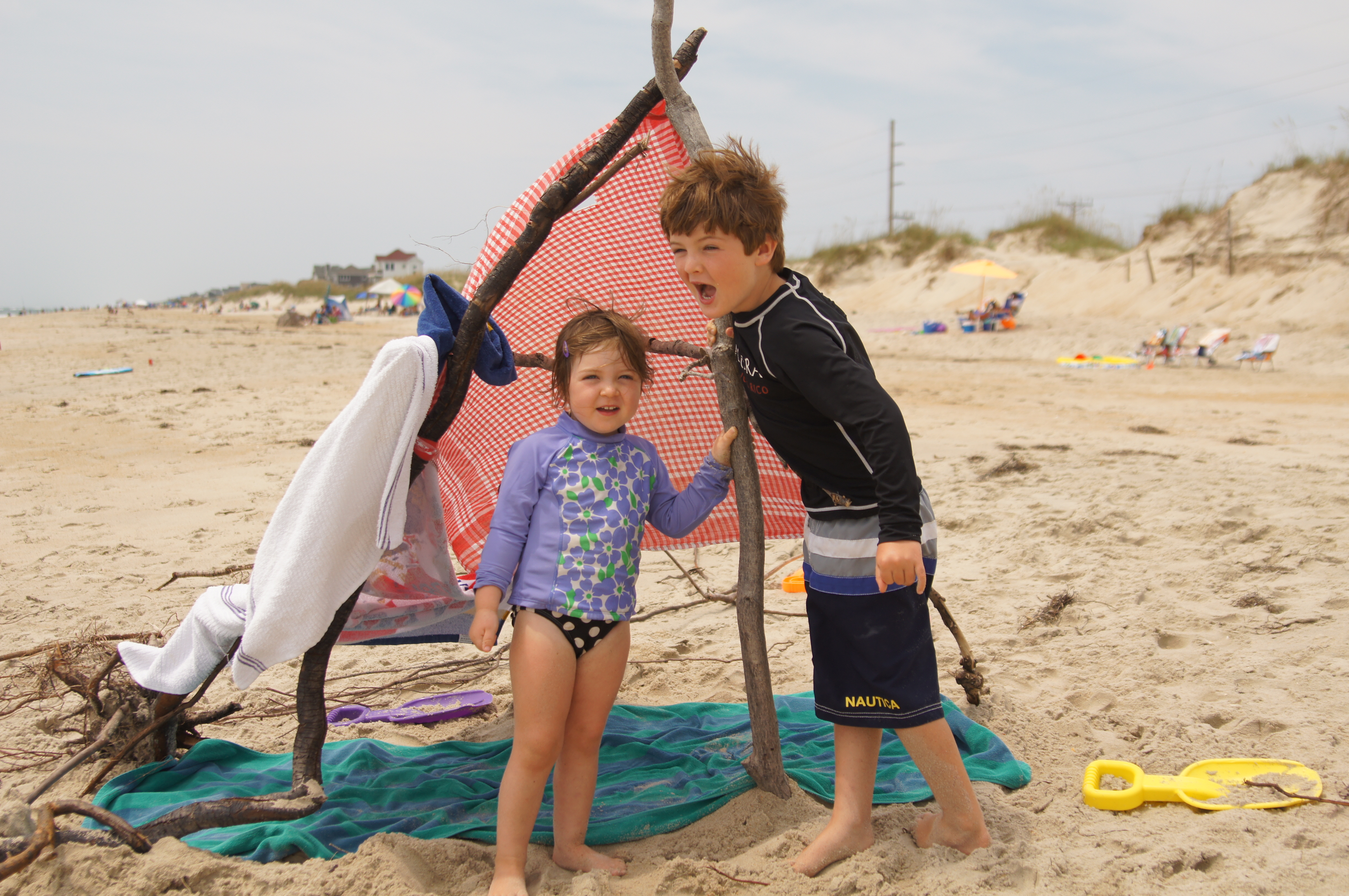
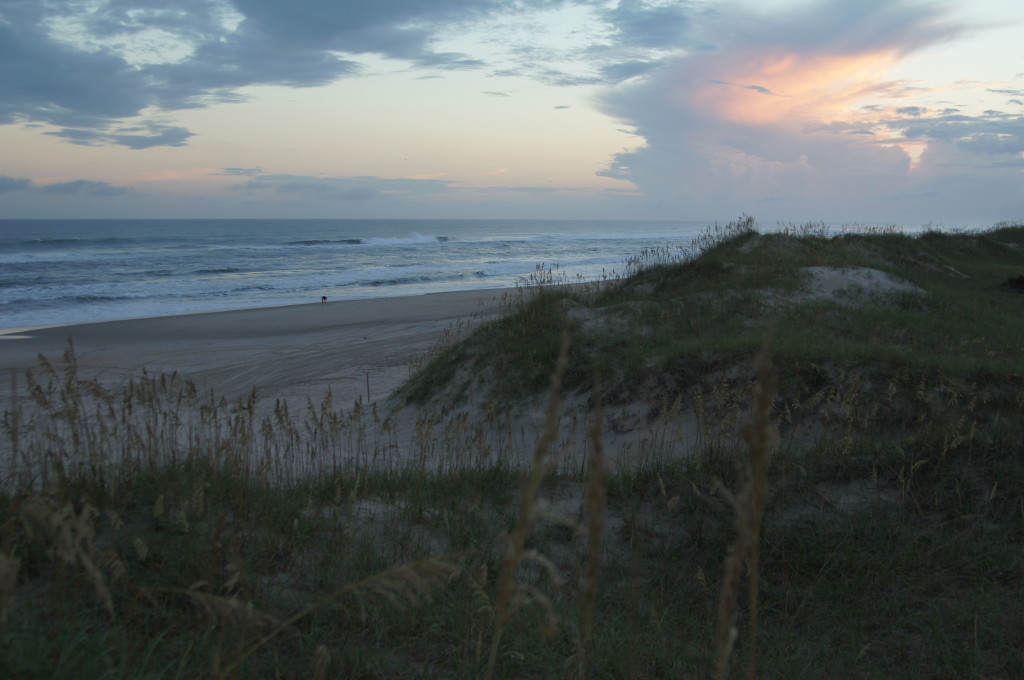
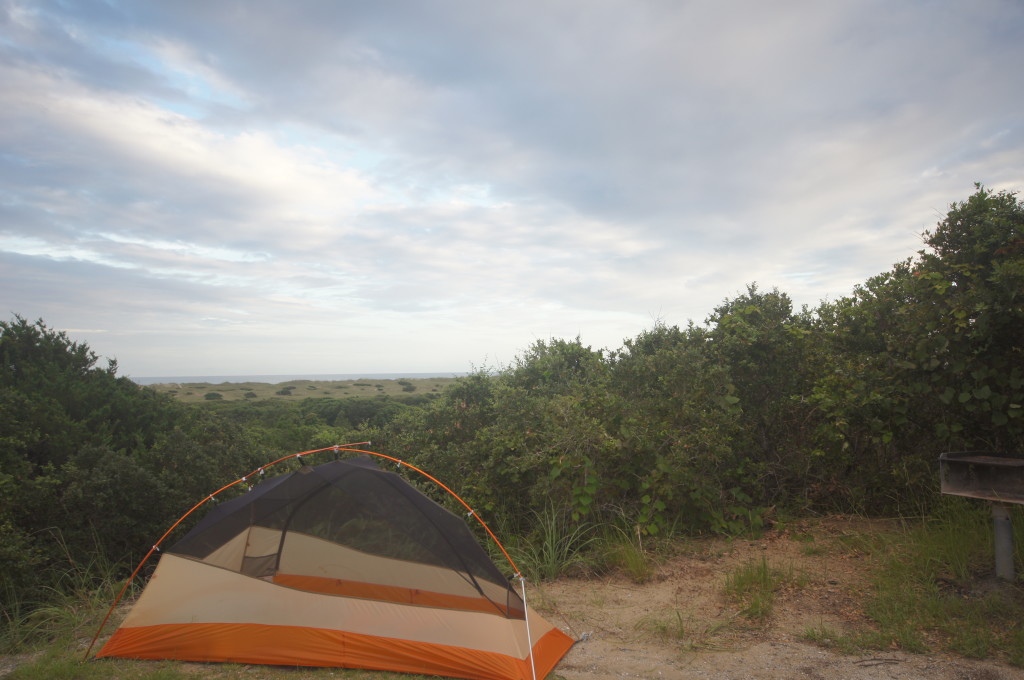
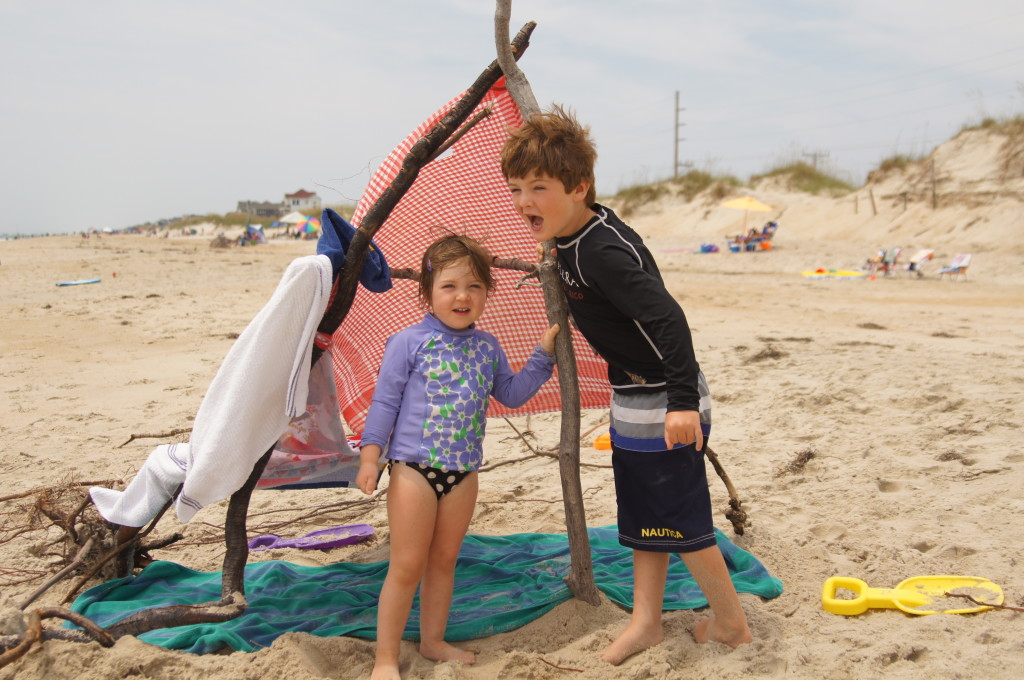
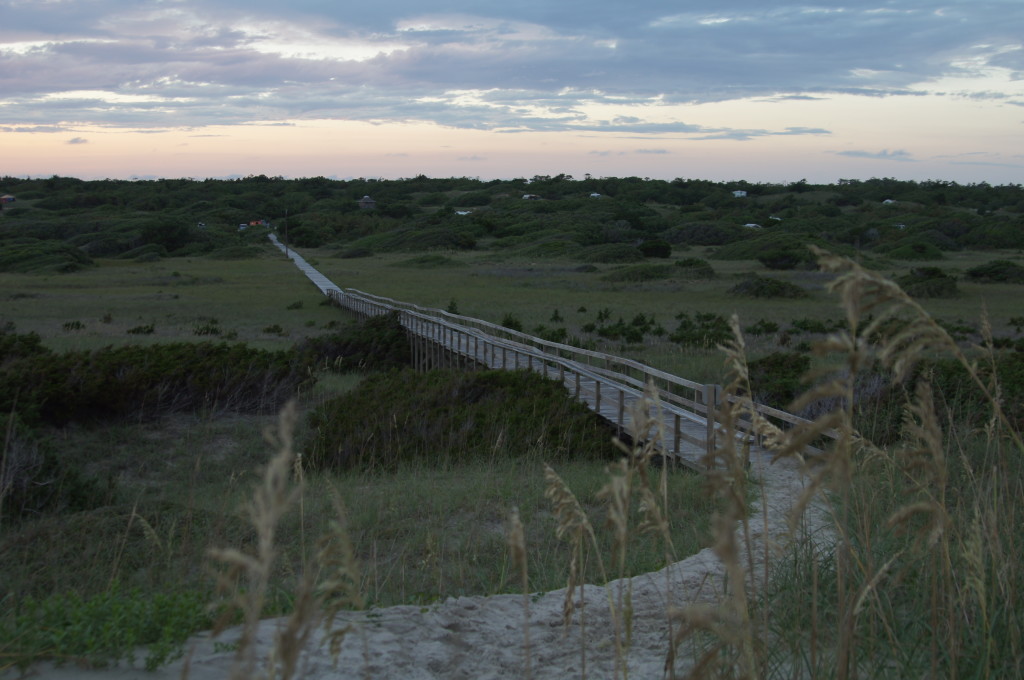
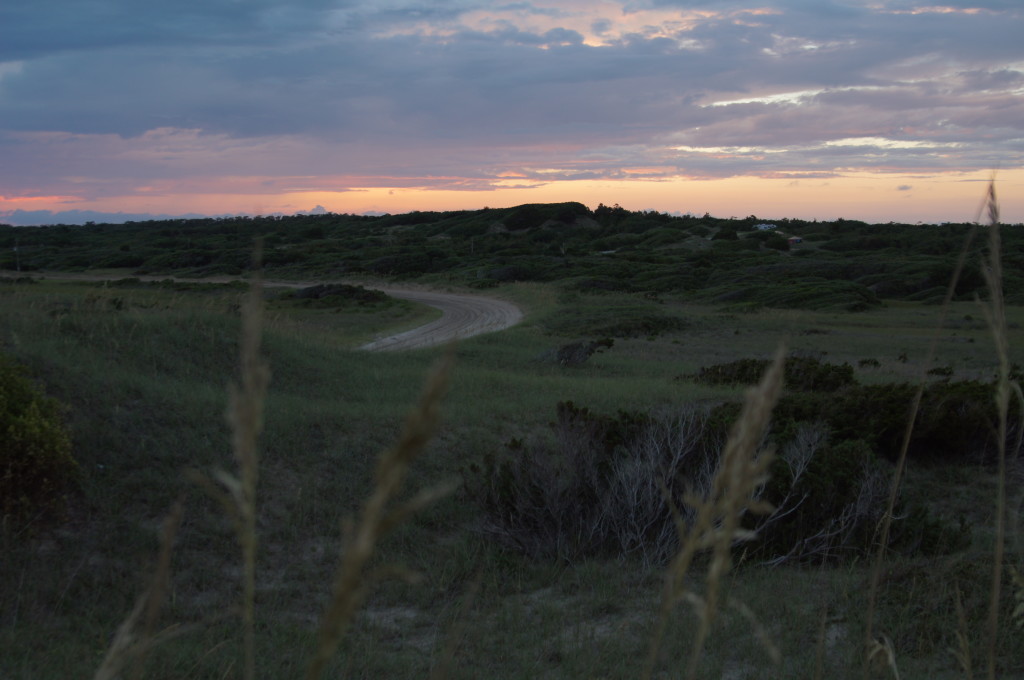
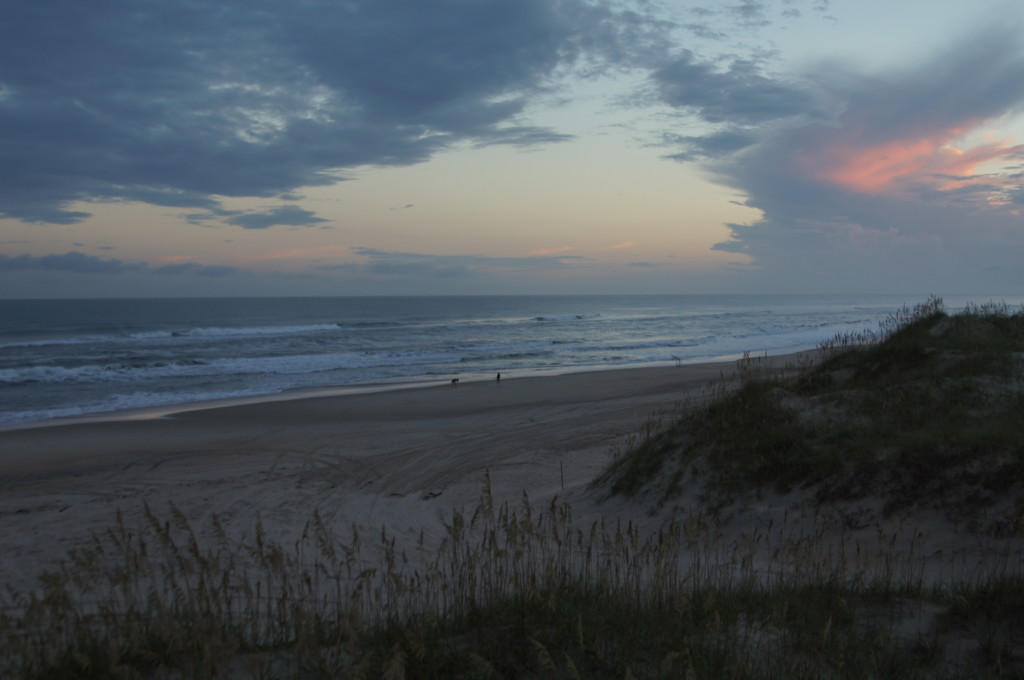
Comments